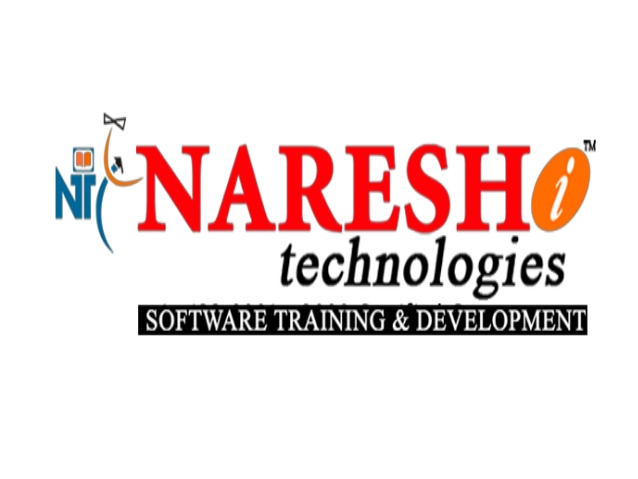C plus plus free videos and free material uploaded by Naresh it staff .
C++ Training Course Objective
The main objective student can able to implement the applications can develop the Programs with classes and objects. The developed application of C can change into with classes and can add all the Object Oriented Concepts. Developing in C++ the application is more optimized and efficient than C.
C++ Training Course Duration
- Normal Track 45 Working days, daily 1.30 hours.
- Fast Track 35 Working days, daily 2.0 hours.
C++ Training Content Basics
- Introduction to C++
- Different paradigms of problem solving
- POP vs OOP
- Features of Object Oriented Programming Languages
- Object
- Class
- Abstraction
- Encapsulation
- Inheritance
- Polymorphism
- Dynamic Binding
- Message Communication
- Constants
- Variables
- Keywords
- Data types
- Declaration of Variables
- Output Stream (cout) & Manipulators
- Input Stream (cin)
- Comments
- Operators
- Arithmetic operators
- Relational operators
- Logical operators
- Assignment operators & compound assessment operations
- Increment & decrement operators
- Conditional operators
- Bitwise operators
- Shift operators
- Type casting
- Compound assignment operators
- Address operators
- Comma operator
- Pointer operator
- Sizeof operator
- new operator
- delete operation
- Control Statements
- Conditional Control Statements
- If, if-else
- nested if-else, if-else-if ladder
- Multiple Branching Control Structure
- switch-case
- Loop Control statements
- while
- do-while
- for
- Nested Loops
- Jump Control structures
- break
- continue
- goto
- return
- Arrays
- Strings
- Structures
- Pointers
- Dynamic memory allocation using new and delete
Functions
- Defining a Function
- Calling a Function
- Return statement
- Function Prototype
- Basic Function Designs
- Scope
- Reference variables
- Recursion
- Parameter Passing Methods
- Call by value
- Call by address
- Call by reference
- Function Overloading
- Default Arguments
- Inline Functions
Classes and Objects
- Defining a Class
- Creating Objects
- Access specifiers
- Accessing Class Members
- Scope Resolution Operator ( :: )
- Defining Member Functions
- Outside the class
- Inside the class
- Member function with argument
- This pointer
- Passing Objects as Arguments
- Returning Objects
- Array of objects
- Pointer to object
- Dynamic objects
- Friend Functions
- Friend Class
Composition
- Container class
- Contained class
- Programs
- Student Class
- Employee Class
- Complex Class
- Matrix Class
- Rational Class
- Circle Class
- Rectangle Class
Constructors & Destructors
- Constructors
- Properties of constructors
- Types of constructors
- Default Constructors
- Parameterized Constructors
Copy Constructors
- Constructor Overloading
- Constructors with Default Arguments
- Destructors
- Differences between Member functions & Constructors
- Differences between Constructors & Destructors
- Static Data Members
- Static member functions
- Constant data members
- Constant Member Functions
Operator Overloading
- Defining Operator Overloading Function
- Overloading Unary Operators
- Overloading Binary Operators
- Overloading Unary Operators using Friend Functions
- Overloading Binary Operators using Friend Functions
- Overloading << & >>
- Programs
Inheritance
- Class hierarchies
- Base classes
- Derived Classes
- Derived Class Definition
- Access specifier : protected
- Types of Inheritance & Programs
- Single inheritance
- Multiple inheritance
- Hierarchical inheritance
- Multi-level inheritance
- Hybrid inheritance
- Multi-path inheritance
- Constructors in Derived Classes
- Destructors in Derived Classes
Polymorphism and Virtual Functions
- Static Binding
- Dynamic Binding
- Virtual Destructor
- Function Overriding
- Accessing Members using Pointers
- Virtual Functions
- Pure Virtual Functions
- Abstract Classes
- Virtual Destructors
Templates
- Introduction
- Advantages
- Function Templates
- Over loading function template
- Class Templates
- Inheritance Class Templates
Exception Handling
- Types of Errors
- Benefits of exception handling
- try, catch, throw keywords
- Throwing an exception
- ‘try’ block
- Catching an exception
- Exception objects
- Rethrowing an exception
- Exception Handling Mechanism
- Catching all exceptions
- Nested try blocks
Files
- File Streams Classes
- Opening & Closing a File
- Detection End of File
- File Pointers & Their Manipulation
- Sequential Files
- Random Access Files
I-O Streams
- I-O stream Class hierarchies
- Unformatted I-O Operation
- get(), put(), getline()
- write()
- in cout
- cin
- Formatted I-O Operations
- width(), precision()
- fill(), setf()
- unsetf()
- Manipulators
- Manipulator operators
- Endl, ends
- manipulator functions
- setw(), setfill()
- setprecision()
- setiosflags()
- setbase()
- resetiosflags()
- User defined manipulators
- Operator and Overloading
Standard Template Libraries
- Containers
- vector
- list, deque
- arrays
- forward_list
- queue
- priority_queue
- stack
- set, multiset
- map, multimap
- Algorithms
- Sorting, Searching
- Important STL Algorithms
- Useful Array algorithms
- Partition Operations
- Iterators
C++ is general Purpose Programming language which supports Object Oriented Concepts., generally C++ is a Super Set of C Language Every C application can be upgraded in C++ with Object Oriented Concepts There are many application like Operating Systems.
Unix, Windows, Linux, NoCrysis Warhead and Other Cool games, No Photoshop, No FireFox, No VLC, No FL Studio, No Playstation, No XBOX and the list continue. 90% of the applications in the world are written in C and C++.

- 0 Reviews
- 18 Students
- 29 Courses

Write a public review